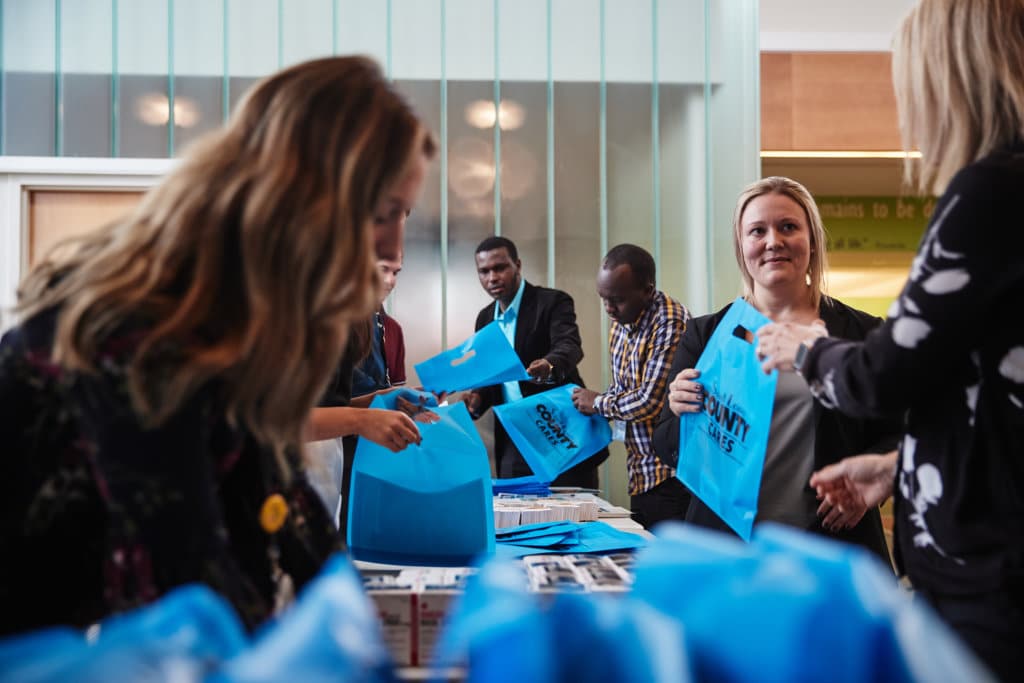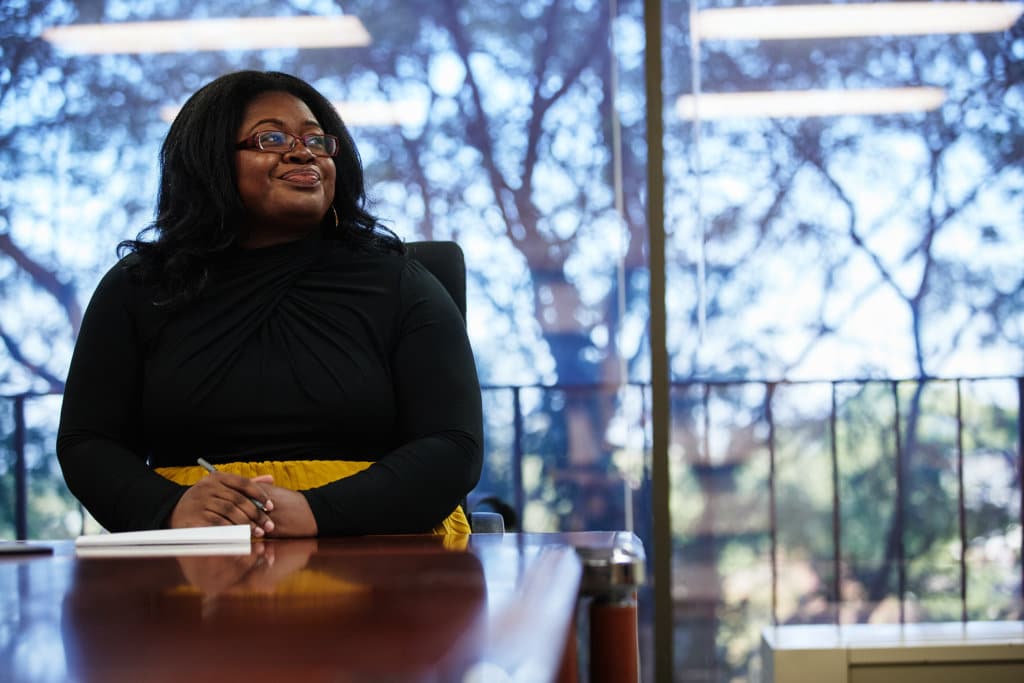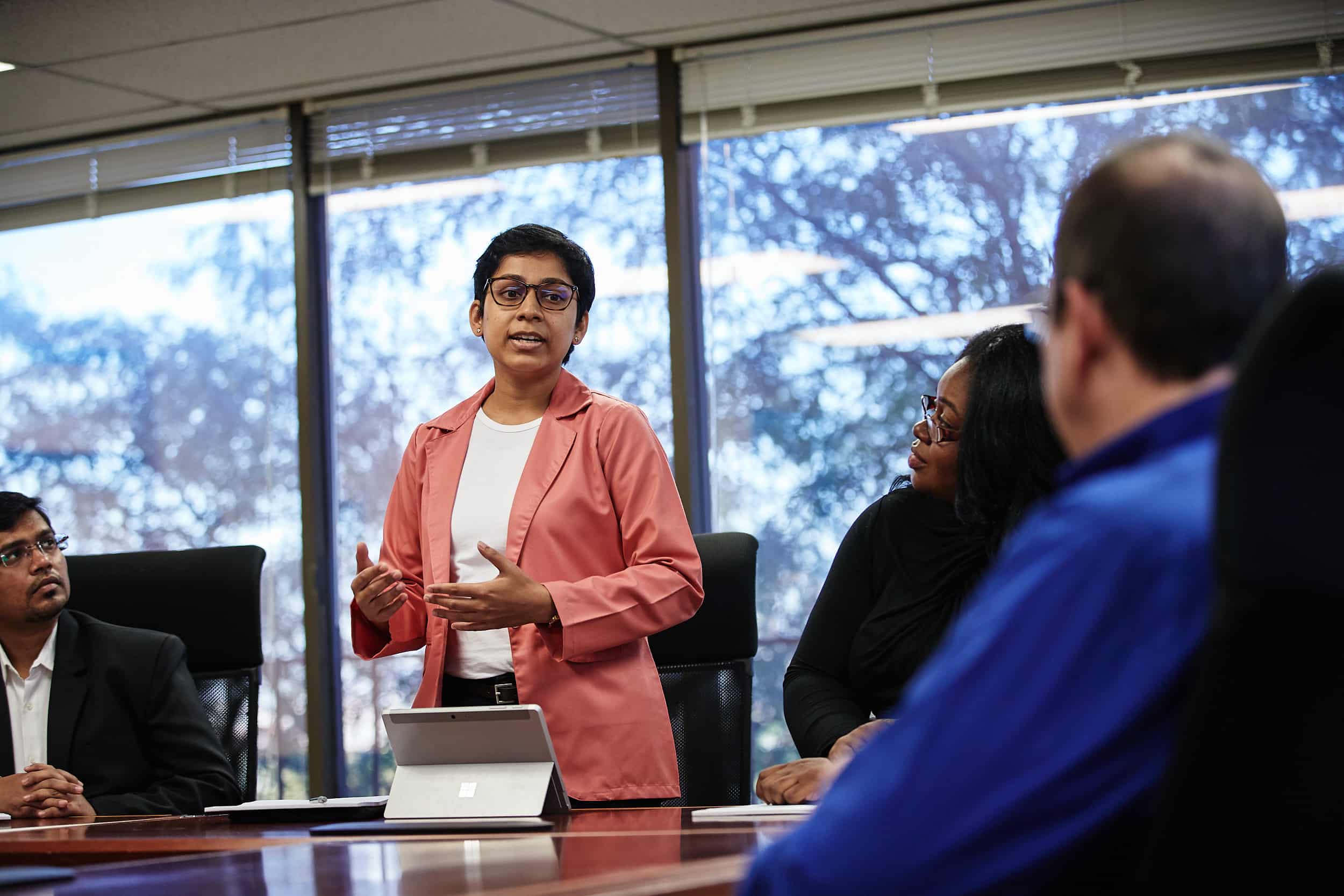When it comes to preparing students for successful careers in public health, no university does it like Saint Louis University (SLU) College for Public Health and Social Justice (CPHSJ).
Recognised as one of the oldest and largest programmes in the American Midwest, SLU’s Master of Public Health is renowned for linking students with a vast network of graduates and industry partners. This lets students earn guaranteed practical experience in both years while pursuing their MPH.
CPHSJ students must take an Applied Practice Experience (APEx) class to graduate. It’s an internship course where students complete 320 hours of hands-on experience related to their concentration.
“APEx offers an opportunity for MPH students to integrate classroom learning, which provides a broad spectrum of public health skills,” says Mary-Lynn Glenn, MPH Internship Coordinator.
Glenn focuses primarily on helping MPH students find internships and providing them with professional development opportunities.
“During the APEx, students work in a public health setting with a public health agency or organisation in a planned, supervised and evaluated experience where they apply public health competencies acquired in the programme to practice through experiential activities,” she says.

Students complete a 320-hour internship programme before graduating. Source: Saint Louis University
What makes the class unique is that it can be completed in person, hybrid or remotely from any public health setting around the world. International students can even return home to carry out their internship.
“APEx is an opportunity for students to explore different areas of public health in a semi-controlled setting and be able to receive credit for it,” says Glenn. “Support is provided throughout the process, from finding an internship during the course and even after their internship is completed.”
There are hundreds of internship opportunities available, including over 60 locally. The St. Louis area is not only rich in culture but also in opportunities to develop a strong, community-based public health experience. Close to SLU, there are several large health systems, including BJC, SSM and Mercy. NGOs and major corporations, such as Express Scripts, Centene and Ascension, offer highly competitive internships as well.
Wherever they intern, students tell of a pursuit filled with extensive practical know-how, great networking and sharpened soft skills.
SLU’s MPH helps students realise many other aspirations too. “Many students come into the programme with an idea of what they would like to do after graduating,” says Glenn. “The APEx course allows students to gain experience in such an area before going out into the workforce. Some students realise from this experience a new area of interest they want to pursue even further.”
More experiential learning opportunities
In their second semester of their first year, SLU students have the option to undertake an optional Public Health in Context Award. In addition to applied project experience, the awards come with an additional US $1,200 scholarship and significant tuition financial aid.
“Generally, students who accept a Public Health in Context Award will work with faculty in their concentration areas and/or with community partners in a variety of settings such as health systems, NGOs of varying kinds and local health departments, to name a few,” says Bernie Backer, Director of Admissions.
“Some students will be involved in research, others in analytics or administrative roles, programme development, assessment and evaluation, and more. The experience will help students develop their research and professional skills, and more importantly, feedback from project leaders will provide valuable development opportunities going forward in the programme.”
The competencies-based experiential training, collaborative faculty and team-based experience ensure MPH students graduate job-ready. Within the first year of graduation, 99% of graduates were employed or furthering their education. Many have gone on to work in organisations like St. Louis Children’s Hospital, Saint Louis County Department of Health, Pfizer and Kaiser Permanente.

SLU’s MPH programme integrates classroom learning in many real-world settings. Source: Saint Louis University
The MPH programme was designed to give students the practical skills they need for a successful career in public health. Eight concentrations are offered to allow students to develop specialised skills in a specific area which will make them more valuable to future employers.
The concentrations offered include Behavioural Science and Health Education, Biosecurity and Disaster Preparedness, Biostatistics, Epidemiology, Global Health, Health Management and Policy, Maternal and Child Health, and Public Health Practice – all of which are accredited by the Council on Education for Public Health (CEPH).
Whether you want to investigate disease outbreaks, crunch numbers or develop policies and programmes to help communities lead healthier lives, there’s a concentration suitable to you.
You can even complete two concentrations, instead of one, as well. The joint concentration will increase the credit hours from 48 to 54. Students can combine epidemiology with behavioural science and health education to gain skills to develop and manage community-based intervention programmes. Many graduates have noted that this has made them more employable.
Ready to kickstart your career in this field and make a difference in society? Apply for Saint Louis University’s master’s programme here.
Follow Saint Louis University on Facebook, Twitter, Instagram, LinkedIn and YouTube.












